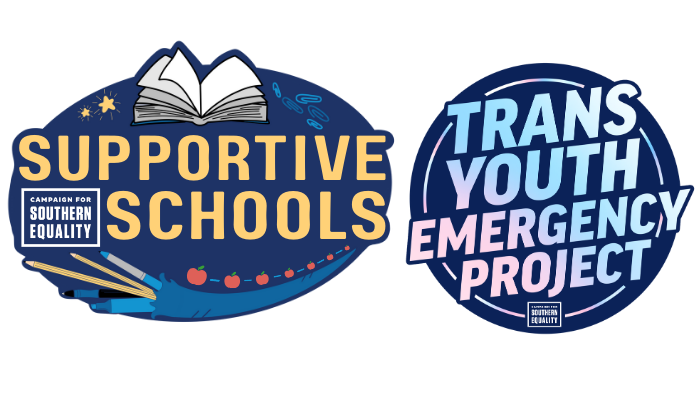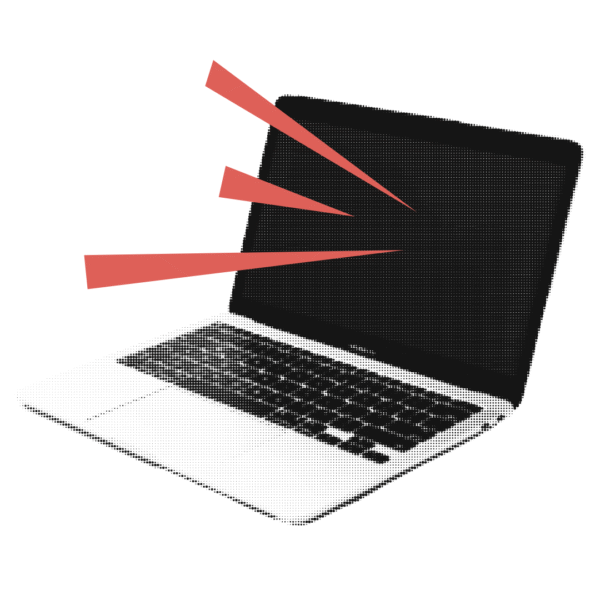
➡️ Eligibility Criteria
➡️ Examples of Possible Projects
➡️ Support Available
➡️ Submit Your Application
➡️ Application Review Process
➡️ Important Dates
➡️ Terms of Your Grant
Please Note: Applications are currently closed. Please check back again later.
The Back-to-School Mini-grants provide small-scale funding and technical support to help student groups, families, and educators create safe, joyful, and community-centered environments for LGBTQ+ youth. The grants are rooted in the values of the Trans Youth Emergency Project and Supportive Schools program at the Campaign for Southern Equality. Together, these initiatives reflect our commitment to ensuring that trans and LGBTQ+ youth can thrive in their home states. Our Trans Youth Emergency Project helps families of transgender youth living in states with bans on gender-affirming care continue to access the healthcare they need to thrive. But we know thriving requires support beyond access to gender-affirming healthcare. It also means learning in schools where they are safe, affirmed, and celebrated. By combining the urgent support of Trans Youth Emergency Project with the long-term vision of Supportive Schools, this program invests in both immediate relief and the creation of joyful, community-centered environments where young people and their families can flourish.
Eligibility Criteria
Who Can Apply?
Student groups, grassroots groups, community-based organizations, or informal collaborations–anybody who’s working to make things better for LGBTQ+ young people in a state with a gender affirming care ban (click here to see which states have gender-affirming care bans in place). You do NOT have to be a formal organization.
Individuals of all ages are encouraged to apply. Funds must be distributed to organizations or individuals over the age of 18, so youth-led projects will need an organizational sponsor or a trusted adult.
Examples of Possible Projects
The following are examples of projects and actions. Grant eligible projects are NOT limited to the examples listed here.
Kindergarten-12th Grade Project Examples
- Students, staff and faculty organize to advocate for an all-gender, single stall restroom to be available in every school in the district.
- A church youth group develops an ‘LGBTQ 101’ presentation that they offer at local churches to dispel myths and stereotypes.
- Student athletes and coaches start an all-gender recreational sports team so that trans students can play and non-binary students don’t have to misgender themselves just to be on the team.
- Elementary school students work with teachers and parents to create a Rainbow Club at their school.
- Two teachers organize a monthly dinner group for LGBTQ+ staff and faculty in their district, which also serves as a rapid response support group when any of them experience harassment or discrimination.
- High school students create and share a list of banned topics, books, authors and historical figures that their teachers aren’t allowed to teach, and use these for their own research, reports and presentations (because students still have freedom of speech).
Higher Education Project Examples
- University students create ‘wellness kits’ that are given out to queer and trans students.
- College students organize a campus healing circle for students affected by discrimination and harassment.
- Students and alumnae at a women’s college organize to change the college’s admissions policy, which excludes transgender women.
- Students organize an off-campus club sports team in response to binary requirements for playing on sports teams set by the university
- Students/faculty organize a group that advocates for inclusive on-campus housing for trans and nonbinary students
- Faculty facilitate a wellness group for LGBTQ+ college/university staff and faculty
- Students organize off-campus support meet-ups with local organizations in response to lack of funding for the LGBTQ+ and/or Multicultural student center
Support Available
Funding: Thanks to the generosity of our donors and funders, we are able to provide twenty $1000 mini-grants to support LGBTQ-affirming grassroots projects. Our plan is to support ten groups working in K-12 schools and ten working in higher education.
Technical Assistance: The CSE team has lots of skills! Our staff can offer grantees coaching or support with community organizing, communications strategies, graphic design, healing and resilience work, fundraising, advocacy, and much more.
Communications: A member of our communications team will talk with each grantee about sharing their story. Options include media releases, blog post features, CSE social media, or nothing at all (if publicity might not serve the goals of the project or put people at risk).
Connections: We will invite all grantees to a meet-up over Zoom in November, so that you can meet each other and share your projects.

Submit Your Application
Please Note: Applications are currently closed. Please check back again later.
Application Review Process
Our review team will select grantees based on:
- Fit. Does the project meet the eligibility criteria and the goals of the mini-grants program?
- Capacity. Does it look like these folks have the ability to carry out this project?
- Impact. Will this project make a meaningful difference for LGBTQ+ young people? Will CSE support make a meaningful difference for this project?
- Inspiration. Is this a project that might inspire similar actions in other places, or otherwise inspire people to support LGBTQ+ youth?
Important Dates
September 1st Application Portal Open
October 1st Application Submission Deadline
November 1st Notification of Award
Terms of Your Grant
If you are awarded a grant and choose to accept it, you agree to the following:
-
- To spend the funds awarded by CSE for the activities listed on your nomination form, website and/or social media.
- To spend funds in accordance with IRS and our 501(c)(3) status requirements – e.g. funds cannot be spent to support a political candidate or political party.
- To contact CSE at [email protected] if changes need to be made to the project, or if funds need to be used for other purposes.
- To be responsible for your programs and for the use and reporting of expenses.
- If receiving a paper check, to cash your grant check within 90 days from the date on the check. If the check is not cashed by this time, payment will be canceled and you will need to submit another grant application to be considered for funding.
- To complete a survey after the project to report progress, results, and recommendations.

